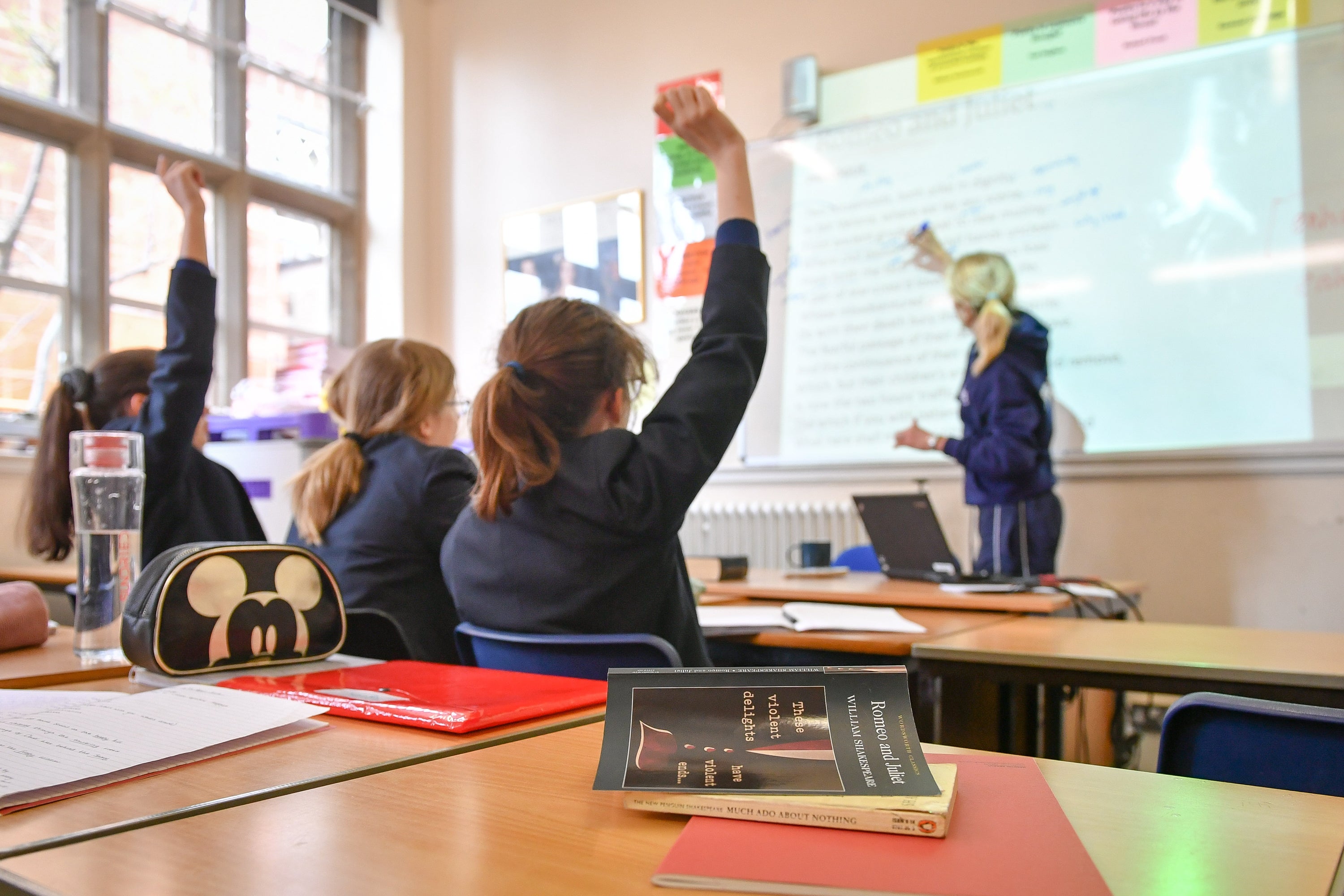Focus on poorer pupils removed as National Tutoring Programme target
A professor of social mobility described the move as an ‘outrageous’ and ‘cynical’ attempt to boost flagging numbers.

Your support helps us to tell the story
From reproductive rights to climate change to Big Tech, The Independent is on the ground when the story is developing. Whether it's investigating the financials of Elon Musk's pro-Trump PAC or producing our latest documentary, 'The A Word', which shines a light on the American women fighting for reproductive rights, we know how important it is to parse out the facts from the messaging.
At such a critical moment in US history, we need reporters on the ground. Your donation allows us to keep sending journalists to speak to both sides of the story.
The Independent is trusted by Americans across the entire political spectrum. And unlike many other quality news outlets, we choose not to lock Americans out of our reporting and analysis with paywalls. We believe quality journalism should be available to everyone, paid for by those who can afford it.
Your support makes all the difference.The removal of a target to help disadvantaged pupils from the National Tutoring Programme is “outrageous” and “cynical”, a social mobility expert has said.
In an email sent to school leaders and tuition partners seen by the PA news agency, the NTP said it had “taken feedback on board from school leaders and tuition partners on how we can remove complexities from the National Tutoring Programme”.
“As a result, we are pleased to advise that tuition partners are no longer required to ensure that 65% of their tuition support is provided to pupils in receipt of pupil premium funding,” it added.
The NTP said it still recommended the focus of tutoring support should be on pupils “who have been most affected by the disruption caused by the pandemic”, but “we recognise that this will include a significant number of pupils outside of the pupil premium cohort and we encourage you to offer your support to this wider audience”.
How can this be levelling up education opportunities? Without an explicit target to focus on poorer pupils the danger is that the tutoring support will just end up supporting more advantaged children and schools
Lee Elliot Major, professor of social mobility at the University of Exeter, said: “This is an outrageous and cynical move which in one one fell swoop removes the central aim of the National Tutoring Programme – to help disadvantaged pupils in particular who have disproportionately missed out on school during the pandemic.
“How can this be levelling up education opportunities? Without an explicit target to focus on poorer pupils the danger is that the tutoring support will just end up supporting more advantaged children and schools.
“For all we know this could worsen, not improve, social mobility.”
Prof Elliot Major said the moved looked like a “desperate attempt to try to boost numbers of pupils being tutored by abandoning the very principles that were behind the tutoring programme in the first place”.
The NTP has been beset with difficulties since its inception.
The time has come for a public inquiry
In February, nearly two-thirds of school leaders said they lacked confidence in the Government’s flagship scheme for education catch-up in a survey of more than 1,000 headteachers by leaders’ union NAHT.
The NTP, a key pillar of the Government’s efforts to provide education recovery for lost learning from the pandemic, has been dogged by reports that its online platform is bureaucratic and difficult to use.
Robert Halfon, chairman of the Commons Education Select Committee, has suggested the Government break its contract with Randstad, the Dutch company contracted to run the scheme.
The email to school leaders – from Karen Guthrie, senior programme director at the NTP – added that the programme had also received feedback that there “may occasionally be a requirement to swap pupils in and out of a block of tuition once it has started, due either to pupil absence or because the full 15 hours of support is not required”.
“We are consulting with the Department for Education on how best to support this requirement without implementing a process that is an additional administrative burden for either schools or tuition partners. We hope to share an update on this with you in the near future,” she said.
Prof Elliot Major said the move away from the requirement to support disadvantaged pupils was “just the latest blow to a programme that is the Government’s flagship education recovery programme”.
“The time has come for a public inquiry,” he said.
A Department for Education spokesperson said: “The National Tutoring Programme is on track to deliver the ambitious target of two million tutoring courses to children this academic year – whilst prioritising tutoring for those children most in need of catch-up.
“The contractual target to deliver 65% of tutoring packages to disadvantaged pupils remains in place. Tutoring organisations have been given some operational flexibility to ensure the programme reaches all eligible schools – and ultimately as many children as possible – whilst ensuring disadvantaged children continue to be prioritised.”